15 June 2023
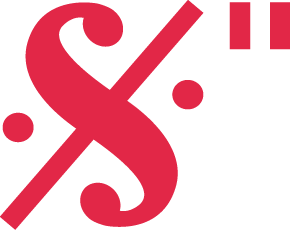
The National Science Centre (NCN) has launched the SONATA BIS 13 call for research projects aiming to create a new research team to conduct basic research. The call is addressed at researchers with a PhD degree conferred within 5 to 12 years prior to the proposal submission year.
Researchers may receive funds to cover remuneration for the research team members, including scholarships for students and PhD students, purchase or manufacturing of research equipment and for other costs crucial to the research project.
Please note: A person named as the principal investigator in a proposal submitted to the OPUS call for which the funding decision has not become final, must not be the principal investigator in a proposal submitted to the SONATA BIS call.
The call budget is 100,000,000 PLN.
Proposals must be submitted electronically via the OSF submission system available at https://osf.opi.org.pl pursuant to the proposal submission procedure explained in the Guidelines for applicants to complete SONATA BIS 13 proposals in the OSF submission system .
The proposal submission deadline in the OSF submission system is 15 September 2023, 4 p.m.
Please note: In response to the Russian invasion of Ukraine, pursuant to a Resolution adopted by the NCN, proposals submitted to the National Science Centre must not provide for any collaboration between Polish and Russian entities. Where any such collaboration is planned, the proposals shall be rejected as ineligible.
Please read the call documents included in this call text.
Show all»
Hide all«
Proposals in the call may be submitted by the following entities specified in the Act on the National Science Centre (NCN):
- universities;
- federations of science and HE entities;
- research institutes of the Polish Academy of Sciences operating pursuant to the Act on the Polish Academy of Sciences of 30 April 2010 (Journal of Laws of 2020, item 1796, as amended);
- research institutes operating pursuant to the Act on Research Institutes of 30 April 2010 (Journal of Laws of 2020, item 1383, as amended);
- international research institutes established pursuant to other acts and acting in the Republic of Poland;
5a. Łukasiewicz Centre operating pursuant to the Act on the Łukasiewicz Research Network of 21 February 2019 (Journal of Laws of 2020, item 2098);
5b. institutes operating within the Łukasiewicz Research Network;
- Polish Academy of Arts and Sciences;
- other entities involved in research independently on a continuous basis;
- groups of entities (at least two entities mentioned in sections 1-9 or at least one institution as such together with at least one company);
- scientific and industrial centres laid down in the Act on Research Institutes of 30 April 2010 (Journal of Laws of 2020, item 1383, as amended);
- research centres of the Polish Academy of Sciences laid down in the Act on the Polish Academy of Sciences of 30 April 2010 (Journal of Laws of 2020, item 1796);
- scientific libraries;
- companies operating as R&D centres within the meaning of the Act on Certain Forms of Support for Innovative Activity of 30 May 2008 (Journal of Laws of 2021, item 706);
- legal entities with registered office in Poland;
13a. President of the Central Office of Measures;
- natural persons and;
- companies conducting research in another organisational form than laid down in sections 1-13.
The principal investigator must be a researcher with a PhD degree conferred within 5 to 12 years prior to the proposal submission year (between 01 January 2011 and 31 December 2018). In specific cases, this period may be extended (§6 (3) of the Resolution on the terms and conditions of the SONATA BIS call).
Academic and research track record should cover the period of the last 10 years prior to the proposal submission year (as of 2013). In specific cases, this period may be extended.
The principal investigator’s academic and research track record must include at least one paper published or accepted for publication. For research in art, the principal investigator must have at least one paper published or accepted for publication or at least one artistic achievement or achievement in research in art.
The principal investigator must reside in Poland for at least 50% of the project duration period and be available to the host institution. The foregoing obligation does not apply to evidenced project-related business trips or holiday, time off work and other absence at work governed by the applicable laws.
Furthermore, the principal investigator must be a person employed at the host institution for the entire project duration period pursuant to at least a part-time employment contract. The foregoing does not apply to persons receiving a pension under the social insurance scheme.
Restrictions on submitting proposals are described in Chapter III of the Regulations on awarding funding for research tasks funded by the National Science Centre as regards research projects.
One can act as the principal investigator in a research project financed under the SONATA BIS call only once.
A person named as the principal investigator in a proposal submitted to the OPUS call for which the funding decision has not become final must not be named as the principal investigator in a proposal submitted to the SONATA BIS call. The foregoing does not apply to the principal investigators in proposals submitted to the OPUS LAP call.
The principal investigator must reside in Poland for at least 50% of the project duration period and be available to the host institution. The foregoing obligation does not apply to evidenced project-related business trips or holiday, time off work and other absence at work governed by the applicable laws.
The principal investigator must be a person employed at the host institution for the entire project duration period pursuant to at least a part-time employment contract. The foregoing does not apply to persons receiving a pension under the social insurance scheme.
The total number of NCN projects managed by a researcher and proposals submitted to the NCN and subject to evaluation or recommended for funding, in which that researcher is named as the principal investigator, must not be more than two, or three if the researcher manages at least one project funded under an international NCN call or has submitted at least one proposal to an international NCN call. The foregoing limits shall not apply to the projects or proposals submitted to PRELUDIUM BIS, DIOSCURI, TANGO, COVID-19
Possible combinations are shown in the table below:
| Number of NCN research projects I manage1 and proposals2I have submitted to the NCN |
Can I submit another funding proposal? |
|---|
| Total |
Research projects OR proposals under domestic calls3 |
Research projects OR proposals under international calls4 |
under domestic call |
under international call |
|---|
| 0 |
0 |
YES |
YES |
|---|
| 1 |
1 |
YES |
YES |
|---|
| 2 |
2 |
0 |
NO |
YES |
|---|
| 2 |
1 |
1 |
YES |
YES |
|---|
| 2 |
0 |
2 |
YES |
YES |
|---|
| ≥3 |
3 |
NO |
NO |
|---|
1 Project management applies to the period from the date of signing the funding agreement under NCN calls to the date of submitting the final report on the project performance.
2 The limit does not apply to proposals pending evaluation or recommended for funding.
3 Research projects or proposals under NCN calls: OPUS, PRELUDIUM, SONATINA, SONATA, SONATA BIS, MAESTRO and research projects under HARMONIA, SYMFONIA and Covid-19.
4 The calls launched by the NCN in collaboration with foreign research-funding agencies include:
- calls launched under EU-funded programmes, e.g., ERA-Net and European Partnerships (UNISONO, POLONEZ, POLONEZ BIS):
- calls launched by the networks of research-funding institutions not co-financed from the EU funds, including within the framework of LAP cooperation (OPUS LAP/ WEAVE, WEAVE UNISONO);
- bilateral calls of the NCN and foreign partner institutions (GRIEG, POLS, IDEALAB, BEETHOVEN, BEETHOVEN CLASSIC, BEETHOVEN LIFE, CEUS, MOZART, ALPHORN, ALPHORN COVID-19, DAINA, SHENG);
Proposals may be submitted to the call covering basic research in any of 26 NCN panels comprising three groups:
- HS – Arts, Humanities and Social Sciences;
- ST – Physical Sciences and Engineering; and
- NZ – Life Sciences.
Under SONATA BIS, research projects may be planned for a period of 36, 48 or 60 months.
The terms of the call do not specify the maximum number of research team members.
According to the terms and conditions of the SONATA BIS call, the tasks to be performed under the project must not include:
- researchers holding an academic title, title of professor, habilitation degree or equivalent degree or title (this condition must be met on the last day of submitting proposals under the call. It does not apply to investigators involved in the project who will receive their academic title, title of professor, habilitation degree or equivalent degree or title in the course of the project); and
- researchers who have cooperated in the implementation of a research project funded following a call for proposals.
Tasks to be performed under the project must involve a PhD student(s), for the total period of at least 36 months pursuant to Types of costs in research projects funded by the National Science Centre.
A PhD student who will receive NCN scholarship for research must be selected in an open call.
Apart from the principal investigator and PhD student(s), research tasks in the project funded under the SONATA BIS call may be performed by additional investigators, including:
- post-docs,
- person occupying a specialist supporting position, and
- students.
A post-doc type post is a full-time post designated by the principal investigator for a person who has been awarded a PhD degree within 7 years before joining the project. This period may be extended pursuant to the Types of costs in research projects funded by the National Science Centre.
- A post-doc type post can be occupied by a person who has been conferred a PhD degree by another entity than the one planning to employ them at this post or has completed a continuous and evidenced post-doctoral fellowship of at least 10 months in another entity than the participating entity and in another country than the one in which they have been conferred a PhD degree.
- A prospective post-doc must be selected in an open call.
Pursuant to the Regulations on awarding funding for research tasks funded by the National Science Centre as regards research projects, a specialist supporting position is a full-time employment position planned by the principal investigator for a person supporting the project, such as lab-managers, senior technicians, statistical analysts, etc..
The rationale for involvement of individual members of the research team in the project shall be evaluated by the expert team. Proposals must include the description of competencies and tasks to be performed by individual members of the research team. For more information on the budget for remuneration and scholarships, go to the Types of costs in research projects funded by the National Science Centre.
The project budget must be well-justified as regards the subject and scope of research, based on realistic calculations and must specify the expenditures to be covered by the NCN (eligible costs).
The terms of the call do not specify the total minimum or maximum amount of funding that can be requested.
A proposal may be rejected at the stage of eligibility check and merit-based evaluation if an unreasonable budget is planned.
During the project implementation, the host institution must agree with the principal investigator the coverage of at least 25% of the indirect costs.
According to the Regulations, the project budget (eligible costs) includes direct and indirect costs.
Direct costs include funds for:
- remuneration for the principal investigator:
- 190,000 PLN per annum if the principal investigator is employed full-time and
- up to 8,000 PLN per month if the principal investigator is employed otherwise;
- remuneration for co-investigators:
- full-time remuneration for post-docs: 140,000 PLN per annum (which may be increased in well justified cases);
- salaries and scholarships for students and PhD students: a total of 10,000 PLN per each month of project implementation;
- additional remuneration for members of the research team - if the principal investigator is not to be employed full-time in the project, his/her remuneration is paid from the pool allocated for additional remuneration;
- purchase or manufacturing of research equipment, devices and software;
- purchase of materials and small equipment;
- outsourced services;
- business trips, visits and consultations;
- compensation for collective investigators and
- other costs crucial to the research project which comply with the Types of costs in research projects funded by the National Science Centre.
Please note: The costs of publication of monographs resulting from research projects, as defined in §10 of the Regulation on the Evaluation of the Quality of Research Activity by the Minister of Science and Higher Education of 22 February 2019 (Journal of Laws of 2019, item 392) may only be incurred following a positive review by the NCN.
Indirect costs include:
- indirect costs of Open Access (up to 2% of direct costs) that may be designated only for the cost of open access to publications or research data;
- other indirect costs (up to 20% of direct costs) that may be spent on costs that are related indirectly to the research project, including the cost of open access to publications and research data.
More on costs in NCN-funded research projects
Together with other European research-funding institutions, the National Science Centre is a member of cOAlition S. Therefore, the NCN has adopted an Open Access Policy pursuant to which all research results stemming from NCN-funded research projects must be made available in immediate open access. The policy does not cover monographs, monograph chapters or peer-reviewed collected works.
In accordance with the principles of Plan S, the National Science Centre recognizes the following publication routes as compliant with its open access policy:
- publication in open access journals and on open access platforms registered, or with pending registration, in the Directory of Open Access Journals (DOAJ);
- publication in subscription journals (hybrid journals), as long as the Version of Record (VoR) or the Author Accepted Manuscript (AAM) is published, by the author or publisher, in an open repository immediately upon the article’s online publication;
- publication in transformative journals covered by an open access licence within the framework of so-called transformative agreements, inscribed in the Efficiency and Standards for Article Charges registry (ESAC-registry).
Manuscripts must be published using the CC-BY licence. In the case of transformative journals, the CC-BY-SA licence can also be used. The CC-BY-ND licence may also be used (regardless of the publication route selected).
More information on open access publication terms can be found here, as amended.
For more information, read the Open Access Instructions.
State aid may be applied for under the call, except where funding is requested by a natural person. For more information, go to the State aid section.
If a project is carried out in an entity, for which funding constitutes state aid, funds for students and PhD students may only be planned as described in the Types of costs in research projects funded by the National Science Centre.
All documents concerning proposals for state aid must be signed with a qualified electronic signature in the PAdES format.
Proposals are subject to an eligibility check and merit-based evaluation.
Eligibility check is carried out by the scientific coordinators. Only complete proposals that meet all requirements of the call text are recommended for merit-based evaluation. A proposal may also be rejected as ineligible at the later stage of evaluation.
Eligible proposals are subject to merit-based evaluation performed in two stages:
Stage I:
- individual reviews are drafted by two members of the team and presented at the first session. In the case of a proposal which is assigned an auxiliary NCN review panel specifying disciplines covered by NCN review panels other than the one to which the proposal was submitted, the chair of the team may decide to seek another review from a member of another team;
- the team decides on the evaluation of the proposal based on the individual reviews;
- a list of proposals recommended for Stage II is agreed upon; and
- justifications for the final decision on proposals not recommended for Stage II of evaluation, are drafted.
The data included in the proposal and annexes thereto (with the exception of the full project description) are evaluated at Stage I.
Then, based on the discussions, a list of proposals recommended for Stage II of evaluation is drafted by the expert team at the first meeting.
Please note: Proposals which are assigned at least one auxiliary review panel from another panel than the one to which they are submitted and identified by the chair as requiring an additional individual review, are deemed interdisciplinary proposals. In well-justified cases, interdisciplinary proposals are subject to an additional expert review at Stage I of evaluation.
Stage II:
- individual reviews are made by at least two reviewers based on the data included in the proposal and annexes thereto, with the exception of the short project description. In specific cases, derogations are allowed from the number of individual reviews;
- the reviews drafted by the reviewers are presented by the experts at the second session;
- the experts interview the principal investigator:
- the coordinator notifies the principal investigator of the interview no later than 14 days in advance;
- the coordinator provides the principal investigator with the experts’ and reviewer’s reviews of the proposal no later than 8 days in advance;
- the principal investigator must participate in the interview held in English at the premises of the National Science Centre.
- in exceptional and well-justified cases, the NCN allows for an interview to be held via available telecommunications tools;
- failure to appear for the interview is deemed as withdrawal from applying for funding of the proposal under the call;
- the final decision on the proposal is agreed upon by the team based on the individual reviews drafted by the reviewers and results of the interview;
- a ranking list of proposals is compiled, specifying proposals recommended for funding; and
- justifications for the final decisions are drafted for proposals not recommended for funding.
An interview with the principal investigator at Stage II of the merit-based evaluation will be held in English in January/ February 2024.
Additional information on the proposal evaluation procedure can be found in the Proposal evaluation procedure for the expert teams.
Please note: The short and full project descriptions must only be drafted in English.
The evaluation of proposals focuses, in particular, on:
- compliance with the basic research criteria;
- quality and innovative nature of the research or tasks to be performed;
- impact of the research project on the advancement of the scientific discipline;
- assessment of the feasibility of the research;
- scientific achievements of the principal investigator, including publications in renowned academic press/ journals;
- reasons justifying the creation of a new research team and manner in which it is created
- evaluation of other projects carried out by the principal investigator and funded by the NCN and/or from other sources;
- relevance of the costs with regards to the subject and scope of the research, and
- preparation of the proposal and compliance with other requirements set forth in the call text.
Please note: Proposals with a zero score or “no” decision agreed by the expert team in any reviewed criterion must not be recommended for funding. The foregoing does not apply to the data management evaluation criteria and evaluation criteria of ethics issues in research.
Proposals are evaluated by inter-panel teams (consisting of experts from respective panels, i.e., HZ, ST or NZ).
In the case of a proposal which is assigned an auxiliary review panel specifying disciplines covered by other NCN panels than the one to which the proposal is submitted, the chair of the expert team may decide to seek a second opinion from a member of another expert team.
Experts are selected by the NCN Council from among eminent Polish and foreign researchers who are at least PhD holders. Expert teams are established for each call edition. The composition of the expert team is subject to the number and subjects of proposals submitted to each panel.
The call results will be published on the NCN website and communicated to the applicants by way of a decision of the NCN Director within 6 months of the proposal submission date, by 15 March 2024 at the latest.
For more information on the call, read the Information for applicants on the NCN website and Guidelines for applicants to complete SONATA BIS 13 proposals .
Should you have any more questions or queries, please contact us by e-mail at: informacja@ncn.gov.pl or telephone:
If you are intending to submit a proposal to SONATA BIS 13, you should:
- read all call documents included in the call text, in particular:
- Terms and conditions of the SONATA BIS 13 call,
- Proposal form template where you can find out about information and annexes needed to complete the electronic proposal form in the OSF submission system,
- Regulations on awarding funding for research tasks funded by the National Science Centre as regards research projects,
- Proposal submission procedure,
- collect data from the applicant that is required to complete the proposal and find out about the internal procedures that may affect the proposal and project performance (project costs, procedure for acquiring signature(s) of authorised representative(s) of the institution to confirm submission of the proposal); if the proposal is submitted by a group of Polish entities, draw up a research project cooperation agreement , and
- prepare letters of acceptance from publishers confirming that the paper has been accepted for publication (when the academic and research track record section includes papers accepted for publication but not published yet).
Before the proposal is submitted to NCN:
- check if all information in and annexes to the proposal are correct. Verification of the proposal for completeness in the OSF submission system by pressing the Sprawdź kompletność [Check completeness] button does not guarantee that information has been entered correctly and that the required annexes have been attached;
- make sure that all tabs are completed in the correct language;
- disable editing of the final version of the proposal to NCN; and
- download the confirmation of proposal submission that needs to be signed by the principal investigator and authorised representative(s) of the institution.
Once the proposal is completed and all required annexes are attached, use the Wyślij do NCN [Send to NCN] button to submit the proposal to the NCN electronically via the OSF submission system.
Upon the end of the call for proposals:
- evaluation of proposals will be carried out,
- after each stage of evaluation, the funding decision of the NCN Director will be announced,
- if the proposal is recommended for funding, a funding agreement will be entered into and
- the project will be carried out pursuant to the funding agreement.
In the event of a breach of the call procedure or other formal infringements, the applicant may appeal against the decision of the NCN Director with the Committee of Appeals of the NCN Council. The appeal must be lodged within 14 days of the effective delivery of the decision.

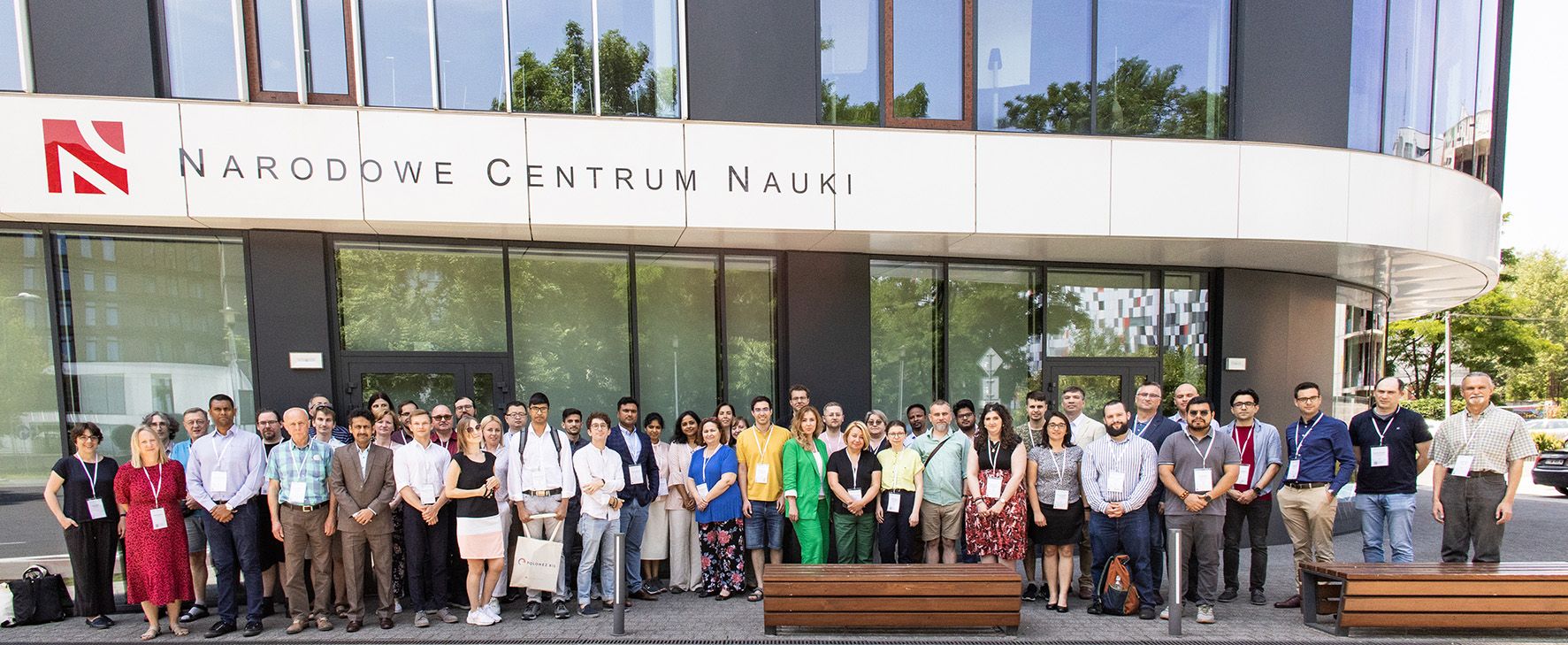
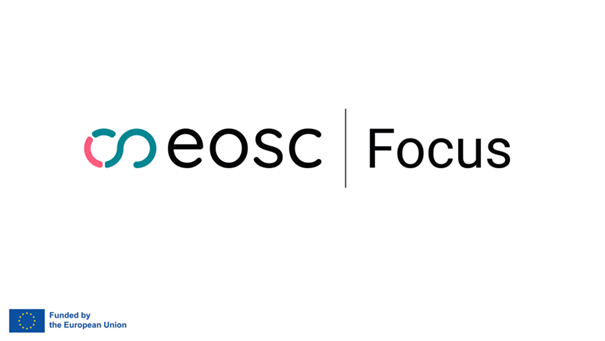
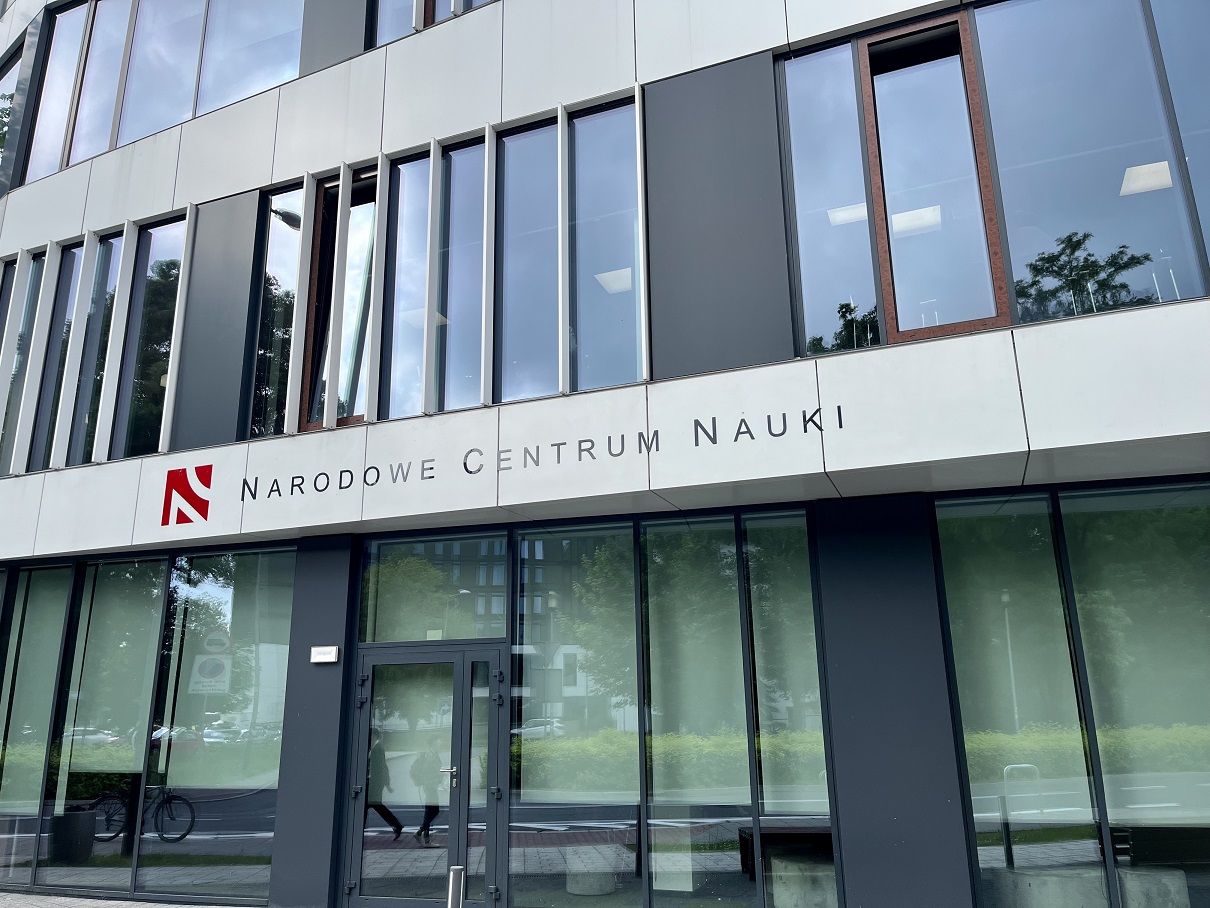
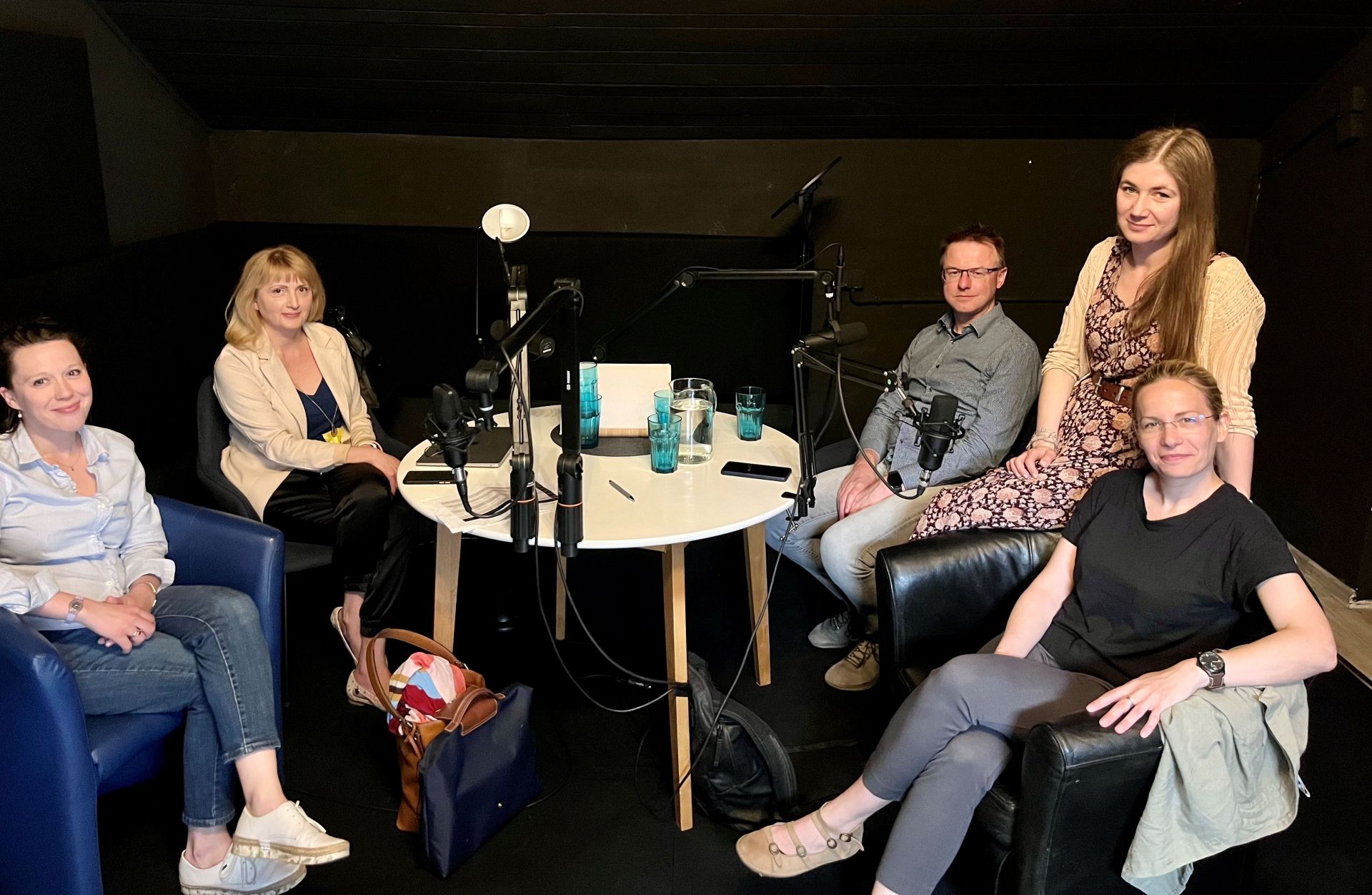
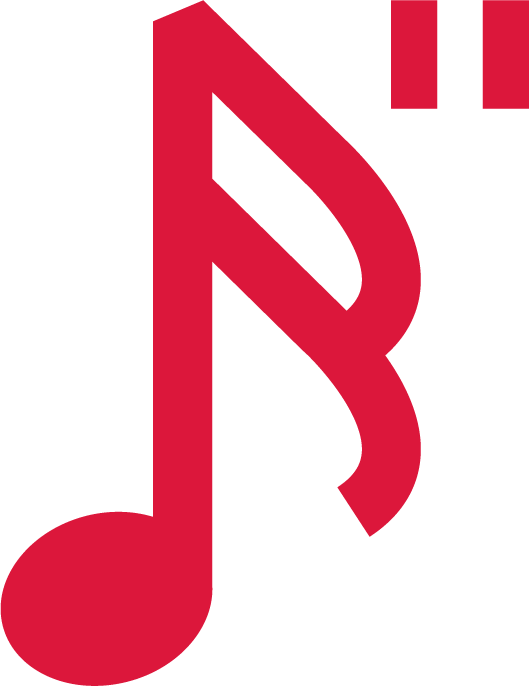
 The most important changes to PRELUDIUM BIS 5
The most important changes to PRELUDIUM BIS 5  Who may apply for funding?
Who may apply for funding? Who may act as the principal investigator?
Who may act as the principal investigator? Are there any restrictions on submitting proposals for research projects under NCN calls?
Are there any restrictions on submitting proposals for research projects under NCN calls? What are the topics covered by the call?
What are the topics covered by the call? What is the project duration period?
What is the project duration period? Are there any restrictions on the size of the research team?
Are there any restrictions on the size of the research team? How should the project budget be planned?
How should the project budget be planned? Open access publication of research results
Open access publication of research results Can proposals in this call include an application for state aid?
Can proposals in this call include an application for state aid?  What is the proposal evaluation procedure?
What is the proposal evaluation procedure? What is reviewed in the evaluation of proposals?
What is reviewed in the evaluation of proposals? Who performs the merit-based evaluation of proposals?
Who performs the merit-based evaluation of proposals? When and how will the results be announced?
When and how will the results be announced? More information
More information 